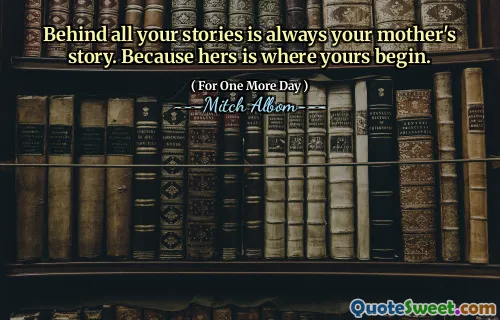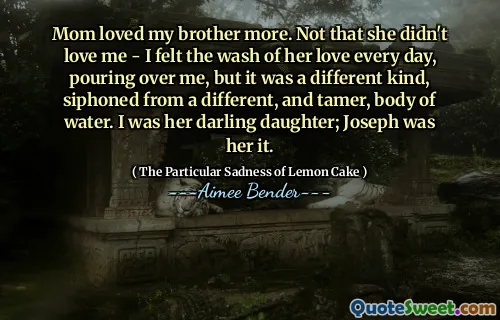
I'm trying to tell him everything will be all right, but how can I say it with a straight face? My son's no idiot. He knows when I'm lying. The medicine won't taste bad. The bath is not hot. Daddy will be safe. Lies.
This quote offers a poignant look into the complex emotions behind trying to comfort someone while internally grappling with doubt and fear. The speaker is attempting to reassure their loved one — likely a child or someone vulnerable — that things are under control and safe. However, the internal conflict is palpable: the speaker admits to the difficulty of maintaining a facade of reassurance, recognizing that honesty might be more comforting than false assurances. The statements about the medicine, bath, and safety serve as attempts to normalize and minimize fears, yet the acknowledgment that 'my son's no idiot' reveals awareness that the truth cannot be hidden for long. It underscores the importance of honesty, especially in moments of vulnerability, and highlights how sometimes, people prefer genuine honesty over reluctant reassurance. There's also an underlying tone of desperation, as the speaker feels the weight of responsibility to shield others from pain or dread, even when they themselves are unsure. This fragment encapsulates a universal human experience: the balancing act of protecting loved ones while dealing with our own fears. The act of lying, or the effort to mask the truth, becomes an emotional burden that reveals the depth of care and concern. It reminds us that authentic connection often involves embracing uncomfortable truths, and that sometimes, our efforts to create a safe space are fraught with internal conflict. The layers of emotion in this quote resonate deeply, emphasizing that honesty and vulnerability are crucial in fostering genuine security and trust—especially in times of uncertainty.








